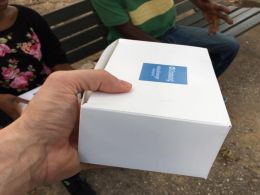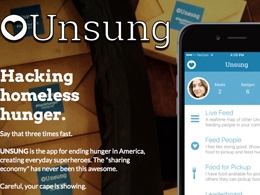
One Year After The Hack, Bitcoin Lives On: Food for Bitcoins
Bitcoin, the online currency which was the focus of a number of highly-publicized media events since its inception in 2009, is making a comeback. After a highly-publicized hacking incident of 2011 resulted in a loss of nearly $9M (USD) worth of Bitcoins, it seemed the burgeoning currency had been thrust into existential peril.
However, despite negative press and a temporary loss of user support, Bitcoin is gaining acceptance as a legitimate currency both online and in the real-world. More than a year after the hacking incident, Bitcoin stabilized and is growing against the US dollar again.
There is an important distinction to be made when considering the security of the Bitcoin. Every Bitcoin-related hack perpetrated since the advent of Bitcoins has been on currency exchange services, not on the Bitcoin currency system itself. This is much akin to online phishing and bank hacking attacks which daily result in the theft of savings account and credit card information - someone steals secure information to a person's account, then withdraws or spends that account's contents. And while theft-related incidents with major lending and credit institutions happen in the thousands per annum, Bitcoin hacking incidents are few and far between.
"Think of all the plusses to using cash and all the plusses for cards and combine them," says Jimmy Honsinger, Bitcoin security expert and owner of BlueTone Media, a web development company that accepts Bitcoin."You can even print them as a QR code, print it out, and exchange it as physical currency at a later date." He praises the security of the Bitcoin system itself but warns that "some 3rd party services commonly used with Bitcoins have security flaws."
But what matters most, is the trust people and merchants put into the currency itself. If the trade value between Bitcoin and major national currencies is any indication, then new and old users of Bitcoin alike are trusting the digital currency more and more. Sean Hays, president of SurvivalFood.com, a worst-case scenario preparation service promoting the survival food storage industry, is one such merchant.
"There is strength in the Bitcoin. It is a peer to peer, decentralized authority on value of goods and services. In addition, there is a finite supply. Combined, this is creating trust amongst Bitcoin users; something critcial for any currency," Sean states.
"Other currencies have centralized banking systems where money is printed on the whim of a few decision makers. This steals the value of hard work, effort, and ideas from people that don't know how to hedge against inflation or have the inside track. This continues to happen around the globe. I don't know that Bitcoin is the perfect answer, but it is a step in the right direction. If basics such as food can be purchased with Bitcoin, more choices will follow."
While Bitcoin is relatively new, alternative currencies have a sustained and traceable place in American history. Historically, alternative currencies reflect the social climate at hand: some are created to fulfill a community's specific needs, some are created to correct perceived shortcomings in the formal currency at hand, and some are created to subvert the governing body. Hundreds of communities printed their own currencies during the Great Depression as a way to keep local economies from crashing, and in recent years economic crisis and economy-minded social movements have pushed digital currencies into circulation. The Bitcoin is unique in transcending traditional geographic boundaries and decentralizing the currency system altogether, but itself is a reflection of the social climate of modern technological progress.
As for SurvivalFood.com, Sean feels Bitcoin and emergency food go hand in hand.
"If the banking system and dollar were to collapse, those having Bitcoin and survival food already in their possession will be better off. Adding Bitcoin and long-term food supplies to our portfolio is not much different than including gold. Under some scenarios, food and Bitcoin might even be better."
So where can Bitcoins be used within your community? The website https://en.bitcoin.it/wiki/Trade provides a list of websites which accept Bitcoin. You can also find Bitcoin-exclusive offers from SurvivalFood.com at http://www.survivalfood.com/bitcoin/.
About SurvivalFood.com
SurvivalFood.com is a retailer of emergency and survival food storage products. The company's mission is to reduce household risk by supplying families and individuals with long term food storage. With thousands of survival food products to choose, SurvivalFood.com provides options that fit every diet and wallet.
More information about SurvivalFood.com is available at http://www.SurvivalFood.com/
About Bitcoin
Bitcoin is an experimental new digital currency that enables instant payments to anyone, anywhere in the world. Bitcoin uses peer-to-peer technology to operate with no central authority: managing transactions and issuing money are carried out collectively by the network.
More can be learned about Bitcoin at http://Bitcoin.org/
About BlueTone Media
Located on the eastern coast of North Carolina, this Wilmington based web design firm delivers rich graphic design, dynamic website administration, web based productivity tools and web marketing packages at very affordable rates and designed by some of the best in the business. Bluetone Media offers the quality of world-class web design and pride themselves on service and support that cannot be matched by any other firm, as well as keeping your websites up-to-date with the latest technology.
More can be learned about BlueTone Media at http://www.bluetonemedia.com/
Related News





